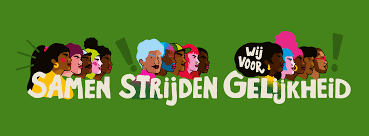
INVITATION TO TENDER
Tender Reference : TD 21/ 003 /HG-NL, see link to document: here
Tender Title: Empower Youth for Work End of Term Evaluation / Date : 17-02-2021
Oxfam is a registered International Non-Governmental Organisation. It is a member of Oxfam International, an international confederation of 17 organisations working together in 98 countries with partners and other allies around the world. Oxfam focuses its activities on providing a comprehensive response to poverty, working cohesively in the four areas that constitute its identity: development cooperation, humanitarian action, faire trade, social mobilization, campaigns and education for global citizenship.
Oxfam is conducting a tender process for the End of Term Evaluation as part of the Empower Youth for Work (EYW) Programme, which aims to empower young women and men in rural climate-affected areas of Bangladesh, Ethiopia, Pakistan and Indonesia. EYW’s Theory of Change applies a holistic approach to effectively drive young people’s social and economic empowerment through 1) work on agency, capacity & skills, 2) linking young people to existing and new economic opportunities including access to finance and 3) the creation of an enabling environment by influencing social norms and policies that facilitate young men and women’s economic and overall empowerment.
Objectives of the evaluation
1. Assess how and why the EYW program strategies contributed to the programme’s TOC outcomes, with a specific focus on sustainability.
2. Capture the key learnings of the programme strategies, including contextual learning- differences between countries-, and higher-level global learnings.
Scope of the evaluation
The evaluation will cover the period January 2016 to the date of evaluation. All four EYW countries and the global PMU team will be included in the evaluation. This includes EYW Oxfam teams, partners, the Critical Friends Youth group, direct and indirect project participants including young women and men, communities, and other key stakeholders from government offices and the private sector.
Key research questions
1. How and where have the EYW programme strategies contributed to enabling the social and economic empowerment of young women and men in rural areas?
2. What are the key learnings from the EYW program strategies in each of the four countries to enable the social and economic empowerment of young people in rural areas and what recommendations can we draw from these lessons for similar future programmes?
Specific questions
1. Analysis of effectiveness
a. Based on the conclusions of the midline and endline surveys as well as other project research efforts, what can we conclude about effectiveness? Which elements of the programme strategy and TOC (including underlying assumptions) are effective or not, and why?
b. What is the effectiveness of project elements that are not captured in the statistical surveys and related reflection workshops? Were there unintended positive or negative outcomes?
2. Sustainability:
a. To what extent do the activities and the benefits of the intervention continue, are likely to continue, or scale after the project ends for all stakeholders and why? Which external factors or project mechanisms are put in place?
b. What are the key factors and risks that will require additional support or attention by local/national project stakeholders in order to improve the prospect of sustainability of the project outcomes and the potential for replication of this approach?
3. Learning:
a. What key lessons were learned over the course of EYW implementation? What are the higher-level global learnings and what are the key differences/learnings per EYW country? What can they learn from each other?
b. What recommendations can we draw from these lessons for similar future youth programmes in terms of the TOC and implementation strategies?
We invite consultants, knowledge and research institutes active in the field of youth employment, socio economic development, and/or other relevant thematic areas to submit their proposal for the end of term evaluation.
Oxfam invites your submission of a proposal to provide Oxfam, within their requirements, for: ‘Empower Youth for Work End of Term Evaluation’
as per the conditions detailed in the Tender Dossier.
The Tender dossier with the full TOR can be obtained by interested parties from:
Mrs: Miranda Lambrechts
Position: Support Officer Youth
Tel: +31 (0)70 342 17 48
Email: Miranda.Lambrechts@oxfamnovib.nl
The deadline for the collection of the Tender Dossier is 18 March 2021 at 16:00 CET.
The deadline for submission of tenders is 21 March 2021 at 11:59 PM CET upon conditions in the tender dossier.
Oxfam does not bind itself to award the tender to the lowest offer and reserves the right to accept the whole or part of the tender.
We look forward to receiving a proposal from you and thank you for your interest in our account.
Oxfam Novib
